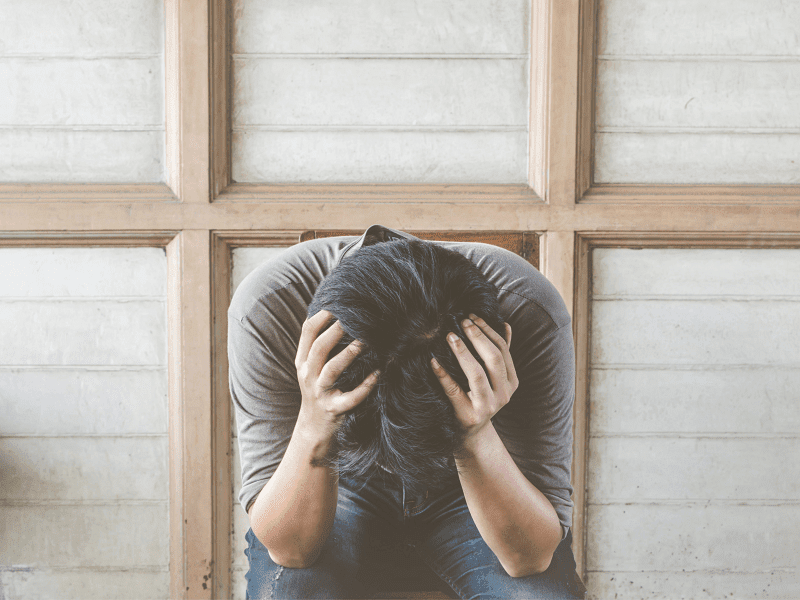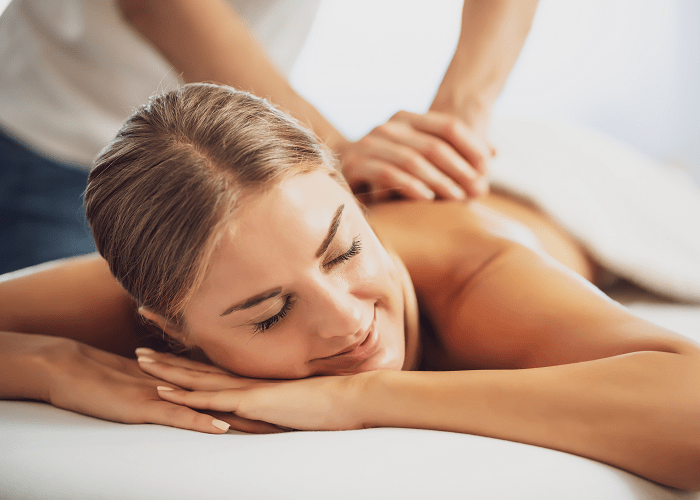The Promising Role of Massage Therapy in Alleviating
Symptoms of Depression


The growing prevalence of depression is a public health concern, with around 264 million people affected worldwide. The current traditional approaches to treating depression are medications and psychotherapy. However, holistic alternative such as massage therapy are being adopted, given people the advantages of a drug-free, non-invasive, and effective treatment option. This article explores how massage therapy can aid in managing and relieving depressive symptoms.
The Connection Between Massage Therapy and Depression
Depression is the feeling of persistent sadness or loss of interest, marked by psychological and physical symptoms that can affect your quality of life. Studies have shown that massage therapy can help alleviate symptoms of depression and anxiety. According to a 2010 review of 17 studies, massage therapy reduced the levels of cortisol, also known as the stress hormone, and increased the levels of “feel-good” neurotransmitters such as dopamine and serotonin. This finding suggests that massage therapy can positively impact those with depression by regulating their mood and relieving stress.
How Massage Therapy Helps Alleviate Depression
Massage therapy helps alleviate depression by promoting relaxation, reducing stress levels, and releasing tension from the muscles. It stimulates the body to release natural endorphins, which can improve your mood and induce feelings of happiness. Moreover, therapeutic massage is a type of sensory stimulation that can reduce anxiety and enhance feelings of comfort, affection, and emotional well-being.
Types of Massage Styles for Depression


There are many different types of massage therapies. However, some types are more effective in treating depression than others. Here are some forms of massages that we recommend for those seeking relief from the symptoms of depression:
1) Swedish Massage:
This type of massage is characterized by long, flowing strokes that help relieve tension and promote relaxation. Swedish massage can help reduce symptoms of depression by calming the nervous system, decreasing stress hormones, and increasing the levels of serotonin and oxytocin in the body – both of which can help improve your mood.
2) Hot Stone Massage:
A hot stone massage involves placing heated stones on specific points on the body, which helps to release tension and promote relaxation. It can be particularly effective for those suffering from depression, as the heat from the stones can help warm the body and stimulate blood flow, reducing feelings of sadness and anxiety.
3) Lomi Lomi:
Lomi Lomi is a Hawaiian massage that uses long, flowing strokes, deep breathing, and meditation to promote a state of relaxation and well-being. This type of massage can help alleviate symptoms of depression by promoting a deep sense of connection and relaxation, which can help to reduce stress and anxiety and improve your mood.
4) Aromatherapy Massage:
Aromatherapy massage involves the use of essential oils to promote relaxation and well-being. The scents of the oils can help to calm the mind and reduce feelings of depression. Moreover, it can be particularly effective when combined with other types of massage.
Benefits of Massage Therapy for Depression
Massage therapy is a drug-free, non-invasive, and effective treatment option. It is also an excellent adjunctive treatment in combination with traditional psychotherapy and medication. It has many benefits for patients with depression, including:
● Reduced epinephrine, and norepinephrine levels.
● Helps fight fatigue
● Reduced muscle tension.
● Reduced pain.
● Improved sleep.
Precautions and Risks of Massage Therapy
Like any treatment option, massage therapy has potential risks and precautions. It should not be done on injured muscles, open wounds, and skin infections. It is important to discuss any existing medical conditions with a licensed massage therapist before undergoing a massage. Additionally, it is not recommended for those who have bleeding disorders, have blood clotting problems, or are currently taking blood thinners.
The Efficacy of Massage Therapy as a Complementary Approach to Treating Depression


Massage therapy can be effective in managing and alleviating the symptoms of depression. Studies have shown that it can help regulate your mood and stress hormones, stimulates the release of natural endorphins, and improve relaxation and comfort. While it is not a standalone treatment for depression, it can be an excellent complementary therapy in combination with medication and psychotherapy. However, it is essential to have a thorough discussion with a physician before initiating a massage session.
Sources:
Depression. World Health Organization. Retrieved from https://www.who.int/news-room/fact-sheets/detail/depression
Sherman, K. J., Ludman, E. J., Cook, A. J., Hawkes, R. J., Roy-Byrne, P. P., & Bentley, S. (2010). Effectiveness of therapeutic massage for generalized anxiety disorder: a randomized controlled trial. Depression and anxiety, 27(5), 441–450. https://doi.org/10.1002/da.20670
Moyer, C. A., Rounds, J., & Hannum, J. W. (2004). A meta-analysis of massage therapy research. Psychological Bulletin, 130(1), 3–18. https://doi.org/10.1037/0033-2909.130.1.3
Caufield, M., & Birdsall, B. (2000). Cutaneous absorption of magnesium from Epsom salt baths. The American journal of physiology, 278(4), R863–R870. https://doi.org/10.
